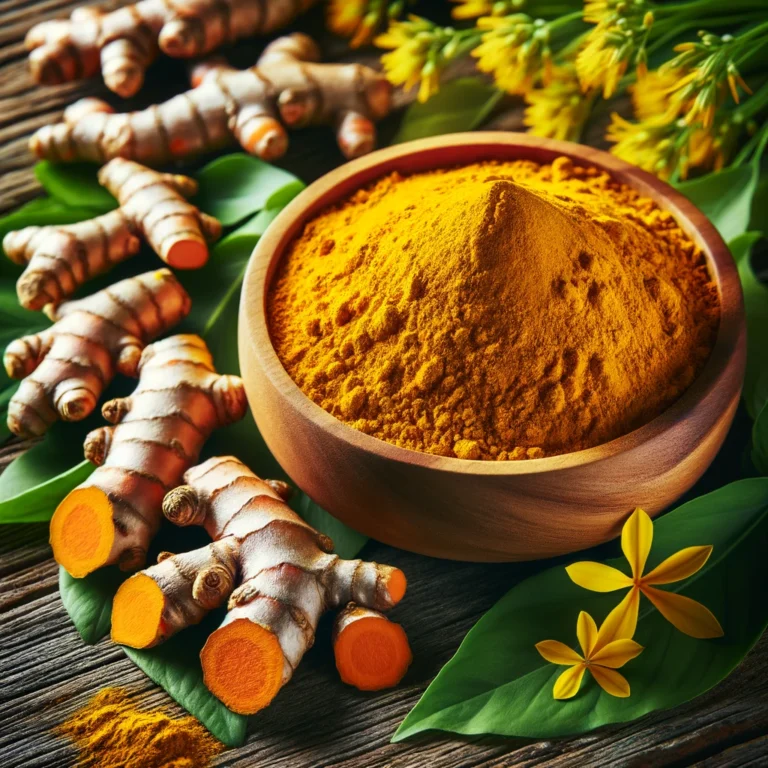The 15 Best Supplements to Boost Your Immune System Right Now
Why Consider Supplements?
In our fast-paced world, maintaining a strong immune system is essential for overall health and well-being. The immune system is our body’s defense mechanism against infections, diseases, and various external invaders. While a balanced diet, regular physical activity, adequate sleep, and stress management form the foundation of good immune health, supplements can play a crucial role in enhancing our immune response.
Even with a well-rounded diet, there are gaps that might prevent you from getting adequate nutrients essential for robust immunity. Factors such as soil depletion, busy lifestyles, and limited dietary choices can lead to nutrient deficiencies. Supplements serve as a practical means to fill these nutritional gaps and support the body’s immune system, especially during times when our bodies require extra protection against common illnesses and pathogens.
Health Benefits of Supplements
Supplements can provide targeted nutritional support. For instance, antioxidants like vitamins C and E can neutralize free radicals in the body, reducing oxidative stress and inflammation—key factors that impair immune function. Minerals like zinc and selenium play critical roles in the normal functioning of immune cells. Moreover, supplements such as probiotics directly support gut health, which is home to a significant part of the immune system. By enhancing gut health, you directly contribute to a more responsive and resilient immune system.
With this understanding, let’s explore the 15 best supplements to boost your immune system and how they can be incorporated into your daily routine to maintain health and ward off illness.

1. Vitamin C
Vitamin C, also known as ascorbic acid, is a powerhouse nutrient that is vital for the maintenance of good health and a robust immune system. It is a water-soluble vitamin that the body cannot produce on its own, which means it must be obtained through diet or supplementation. Here’s why Vitamin C is a top contender in the arsenal of immune-boosting supplements:
Immune Defense Enhancement
Vitamin C is renowned for its considerable role in bolstering the immune system. It supports various cellular functions of both the innate and adaptive immune systems. Vitamin C helps to stimulate the production and function of white blood cells known as lymphocytes and phagocytes, which help protect the body against infection. Additionally, it helps these cells function more effectively while protecting them from damage by potentially harmful molecules, such as free radicals.
Antioxidant Protection
One of Vitamin C’s most important functions is its role as an antioxidant, helping to protect cells from oxidative stress. Oxidative stress can negatively affect immune health and is a key factor in many diseases, including cancer and heart disease. By scavenging free radicals, Vitamin C helps to reduce inflammation and boost overall health.
Skin Barrier Function
Vitamin C is also vital for the skin’s defense system. It helps to strengthen the skin’s barrier mechanisms against pathogens and promotes the skin’s oxidant-scavenging capacity, significantly enhancing its ability to combat oxidative stress. This is crucial because the skin is often the first line of defense against environmental oxidative stress such as pollution and UV radiation.
Enhancement of Other Immune Nutrients
Interestingly, Vitamin C can also regenerate other antioxidants within the body, including Vitamin E. By doing so, it enhances the body’s overall antioxidative potential and helps maintain the oxidative balance, which is crucial during times of illness or stress.
Sources of Vitamin C
To ensure adequate intake of Vitamin C, include plenty of fruits and vegetables in your diet, such as oranges, strawberries, kiwi, bell peppers, green vegetables, and tomatoes. For individuals who have difficulty consuming enough Vitamin C through diet alone or are at an increased risk of deficiency (such as smokers and older adults), supplementation can be a practical approach to ensuring adequate intake.
Recommended Intake
The recommended daily allowance (RDA) for Vitamin C varies by age and gender, but the general recommendation for adult men is about 90 mg per day and for adult women about 75 mg per day. During times of illness, some health experts suggest increasing the dosage temporarily, although it’s important to consult with a healthcare provider before doing so.
2. Vitamin D: The Sunshine Vitamin for Immune Fortification
Vitamin D, often referred to as the “sunshine vitamin,” is crucial for several bodily functions, including the maintenance of healthy bones and teeth. More importantly, in the context of immune health, Vitamin D plays a pivotal role in enhancing the pathogen-fighting effects of monocytes and macrophages — white blood cells that are important parts of your immune defense — and decreases inflammation, which can help promote immune response.
Immune System Regulation
Vitamin D is unique among vitamins because it functions as a hormone, and every single cell in your body has a receptor for it. It is essential for immune function because it helps to activate T cells, which are key to fighting off pathogens. If T cells cannot find enough Vitamin D in the blood, they will not even begin to mobilize. Thus, maintaining adequate levels of Vitamin D is critical for enabling the immune system to function properly.
Protection Against Respiratory Infections
Several observational studies have linked lower levels of Vitamin D with increased susceptibility to infections, particularly respiratory tract infections. Clinical trials suggest that supplementing with Vitamin D can enhance resistance against such infections by regulating the production of antimicrobial peptides — natural antibiotic-like substances in the lungs.
Inflammatory Response Reduction
Vitamin D also plays a crucial role in reducing the risk of inflammatory responses. This is particularly important in the context of immune-related disorders, as excessive inflammation can lead to tissue damage and increase susceptibility to diseases.
Sources of Vitamin D
While Vitamin D can be obtained from the diet, the number of foods naturally containing significant amounts of it are limited. These include fatty fish like salmon and mackerel, fish liver oils, and fortified foods like milk and cereal. However, the most efficient source of Vitamin D is sunlight exposure. Skin synthesizes Vitamin D photolytically when exposed to UVB rays from sunlight.
Supplementation and Recommended Intake
Given the limited dietary sources and the need for sunlight exposure, Vitamin D deficiency is surprisingly common, especially in colder climates and among people with darker skin. Supplementation may be necessary for individuals who get limited sun exposure, live in northern latitudes, or wear sunblock regularly as part of their skincare routine. The recommended daily intake can vary based on geographic location, skin color, age, and current Vitamin D levels, which can be measured with a blood test.
The general recommendation is 400–800 IU/day, but some studies suggest that a higher daily intake of 1000–4000 IU may be more effective at maintaining optimal levels.
Vitamin D is a key player in the immune system, often overlooked but vital for its functioning. It not only helps in bone health but is crucial for activating the immune system’s defenses against pathogens and managing inflammatory responses. Ensuring adequate Vitamin D intake through sunlight, diet, or supplementation can significantly bolster immune health and provide protection against various infections, particularly during the winter months when sunlight is scarce.
3. Zinc
Zinc is vital for immune cell function and signaling and is known to reduce the length of respiratory tract infections like the common cold.
4. Elderberry
Rich in vitamins and antioxidants, elderberry is popular for its efficacy in fighting cold and flu symptoms.
5. Echinacea
This plant extract is known for boosting the immune system and reducing the symptoms of colds and other illnesses.
6. Probiotics
These beneficial bacteria are essential for gut health, where a significant portion of the immune system is located. Probiotics help in maintaining the gut’s immune response.
Our Services
Our services include:
- Garlic – a potent anti-inflammatory and immune-boosting food
- Vitamin B6 – essential for the production of immune cells and antibodies
- Astragalus Root – an adaptogenic herb that supports the body’s natural defense mechanisms
- Vitamin E – an antioxidant vitamin that helps protect the body against oxidative stress and inflammation
- Selenium – a mineral that is essential for the production of antioxidant enzymes and plays a vital role in immune function
- Ginger – a potent antiviral and anti-inflammatory food
- Omega-3 Fatty Acids – healthy fats that are vital for immune function and can help reduce inflammation in the body
- Andrographis – a plant extract with potent antiviral properties that can boost the immune system’s response to infections
- Colostrum – a nutrient-rich substance produced by lactating mammals that is packed with immune-boosting compounds
Garlic
Lorem ipsum dolor sit amet, consectetur adipiscing elit. Ut elit tellus, luctus nec ullamcorper mattis, pulvinar dapibus leo.
Vitamin B6
Lorem ipsum dolor sit amet, consectetur adipiscing elit. Ut elit tellus, luctus nec ullamcorper mattis, pulvinar dapibus leo.
Astragalus Root
Lorem ipsum dolor sit amet, consectetur adipiscing elit. Ut elit tellus, luctus nec ullamcorper mattis, pulvinar dapibus leo.
Vitamin E
Lorem ipsum dolor sit amet, consectetur adipiscing elit. Ut elit tellus, luctus nec ullamcorper mattis, pulvinar dapibus leo.
Selenium
Lorem ipsum dolor sit amet, consectetur adipiscing elit. Ut elit tellus, luctus nec ullamcorper mattis, pulvinar dapibus leo.
Ginger
Lorem ipsum dolor sit amet, consectetur adipiscing elit. Ut elit tellus, luctus nec ullamcorper mattis, pulvinar dapibus leo.
7. Garlic
Garlic has powerful anti-inflammatory and antiviral properties, making it excellent for immune system support.
8. Turmeric
Known for its anti-inflammatory properties due to curcumin, its active compound, turmeric can help modulate the immune system.
9. Ginger
Another anti-inflammatory powerhouse, ginger can help reduce inflammation and bolster immune response.
10. Omega-3 Fatty Acids
Found in fish oil and flaxseeds, omega-3s are known to help regulate the immune system and protect against disease.
11. Vitamin B6
This vitamin is crucial for biochemical reactions in the immune system. Chicken, salmon, and tuna are good sources, but supplementation can also help.
12. Selenium
Selenium is a powerful antioxidant that boosts the body’s defenses against bacteria, viruses, and cancer cells.
13. Astragalus
An herb used in Chinese medicine, astragalus is believed to boost immunity and reduce symptoms of colds and upper respiratory infections.
14. Andrographis
Known as the “Indian echinacea,” andrographis is another herb thought to help prevent colds and reduce their severity.
15. Vitamin E
Like vitamin C, vitamin E is a powerful antioxidant that helps fight off infection due to its immune-enhancing properties.
Conclusion
While supplements can aid in supporting your immune system, they are not a cure-all and should be used as a complement to a healthy lifestyle. It’s important to maintain a balanced diet, get regular exercise, ensure sufficient sleep, and manage stress. Always consult with a healthcare provider before starting any new supplement, especially if you have underlying health conditions or are taking other medications.









